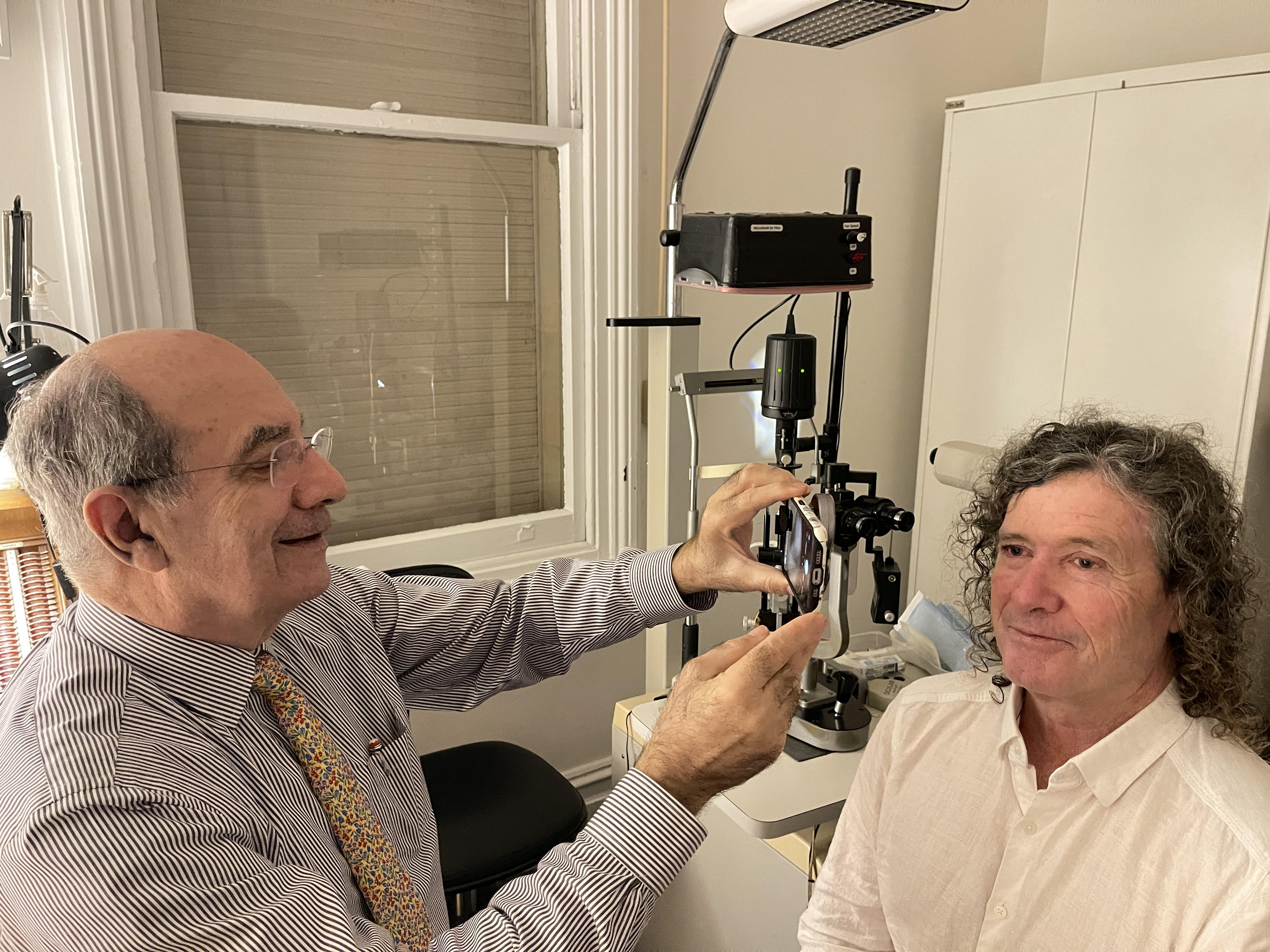New study can detect early UV damage
Australia’s leading eye experts, led by Prince of Wales Hospital’s Professor Minas Coroneo AO, have started a study of a novel, prototype smartphone-based tool used for the assessment of ultraviolet (UV) damage to the eye, which can be an early predictor for skin cancer.
It’s no secret that Australia has some of the highest levels of UV radiation in the world, with skin cancer and eye diseases impacting millions of Australians. An effective, more accessible means of identifying individuals at greater risk of developing a UV-related disease is urgently needed.
“Despite the magnitude of the problem, there are currently no readily available, objective means of assessing early ocular UV damage an individual may have,” said Prince of Wales Hospital Head of Ophthalmology, Professor Coroneo.
“Our team was one of the first to document that the UV-related conditions affecting the eye, such as pterygium (tissue growth onto the cornea) and one type of cataract, could be an early sign of skin cancer, decades before its manifestation.
“This is because light focusing by the eye “speeds up” pathology in the eye so that it can manifest well before changes in the skin.”
To address this growing need, Professor Coroneo’s team are developing an optical add-on that can be retrofitted to everyday smartphones, enabling instant and portable UV eye damage detection.
The study is already recruiting participants. One participant is 60-year-old Peter Phillips, is a retired greenkeeper and avid surfer from the beachside suburb of Bronte in NSW.
“I spent my whole childhood in the sun and surf, and then working outdoors. I think this build-up of UV damage over many, many years caused the melanoma I’ve had removed from my lower back. I’ve also recently had a pterygium removed from my eye.
“If I’d had a convenient device like this one we’re going to be testing, then I would have definitely used it to avoid the eye damage and skin cancer I’ve had from being out in the sun so much. You just don’t notice the damage it’s doing to you until it’s too late.
“With this I could check every day if I wanted to, without having to make time for doctor appointments”, said Peter.
This study was made possible thanks to a $125,000 grant from Prince of Wales Hospital Foundation, who are celebrating 20 years of impact this year.
Watch to learn more:
